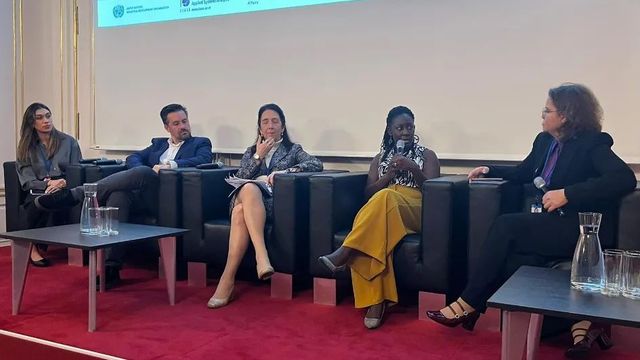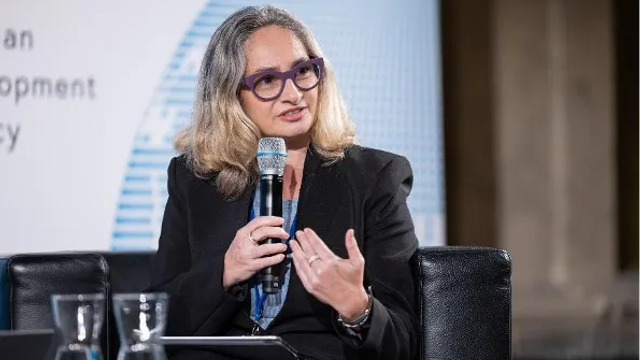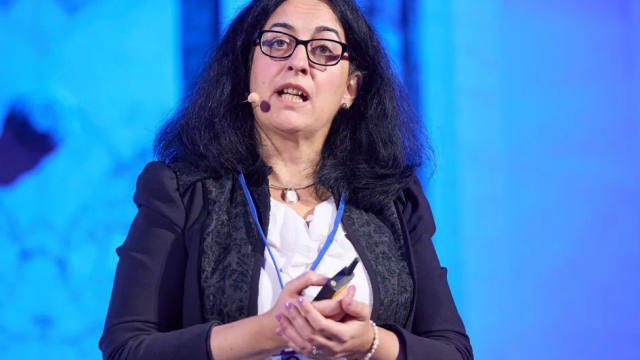Engineering Africa's Energy Transition: Innovations and Insights and Beyond, Contributions to the International Vienna Energy and Climate Forum
During the recent International Vienna Energy and Climate Forum (IVECF), which is a global stage dedicated to showcasing solutions and dialogues for energy transformation and its intersection with climate, the "Engineering Africa's Energy Transition'' session took center stage, shedding light on engineering solutions to confront Africa's energy challenges. The event featured contributions from distinguished experts and was moderated by Radia Sedaoui, Chief, Energy Section, UNESCWA. The discussion of the session focused around the issues of finance for energy solutions in Africa, alongside a robust industrial development strategy, emphasizing the need to match solutions and demand for specific countries. The panel also discussed how new blended finance tools are needed in order to address the issues of investments at scale and perceived risk.
Challenges in Africa's Energy Landscape
Norah Magero, CEO of Drop Access and member of the Council of Engineers for the Energy Transition (CEET), passionately addressed the critical hurdles facing Africa's energy sector. Poverty, the lack of electricity access, and the scarcity of clean cooking solutions are at the forefront of these challenges. She stressed the importance of engineers' roles in ensuring equitable research and development (R&D). Notably, women are disproportionately affected, making gender-inclusive technologies a must. Maguero emphasized the central role of women in rural, off-grid communities, and the need for women to be at the heart of future innovations. Engineers, she argued, have a pivotal role in maturing technologies while advocating for sustainability through circular practices.
The Holistic Nature of Technology
Semida Silveira, Professor at Cornell University and CEET Speaker, offered a fresh perspective, highlighted that technology accounts for just 30% of the energy transition equation, while the remaining 70% encompasses services and other vital aspects of this transformation. Silveira noted that the early focus on efficiency and combustion might have overlooked essential services such as heat and light. The introduction of gas cookstoves led to people paying for what was once free. She stressed the need for a more comprehensive approach and highlighted how, with just two cows, it's possible to power a household, providing light and two meals a day. Silveira also emphasized the impending revolution in skills development at universities.
Innovative Financing for Clean Energy
Peter George, Partner and Co-Investment Director of Spark+ Africa Fund, delved into the financial side of Africa's energy transition. He introduced the Spark+ Africa Fund, a $64 million debt fund supported by public and private investors, DFIs, the EU Commission, African Development Bank, and Swiss pension funds. This fund employs a blended finance approach, incorporating concessional money to attract private capital. George noted that even when dealing with concessional funds, investors expect returns. He shared examples like ethanol fuel ATMs that accept M-pesa payments (e-wallet) in Kenya, making energy more accessible. Furthermore, he stressed the necessity of carbon finance and subsidies to achieve clean cooking targets, as commercial solutions alone would not suffice. George also highlighted the high transaction costs associated with these projects, which often deter banks from investing in less-known, high-risk projects.
The "Engineering Africa's Energy Transition" session at the International Vienna Energy and Climate Forum underscored the pivotal role of engineering, technology, and innovative financing in reshaping Africa's energy landscape. Addressing the challenges of poverty, energy access, and gender inclusivity and recognizing the comprehensive nature of the energy transition, the discussion emphasized the urgent need for sustainable solutions in the region. As Africa stands on the cusp of an energy revolution, these insights will play a crucial role in accelerating the transition towards cleaner, more accessible, and more sustainable energy solutions. This is a transformative journey, and the innovators, engineers, and financial minds at the forefront are shaping a brighter energy future for Africa.
CEET contributions beyond Africa
Beyond the dedicated session on Africa, CEET´s engineers showcased solutions on cluster approaches for industrial decarbonization, nature-based solutions, carbon capture, usage and storage and clean cooking. CEET Council members: Mercedes Maroto-Valer, Director, UK Industrial Decarbonisation Research and Innovation Centre; Franz Josef Radermacher, Director, Research Institute for Applied Knowledge Processing and Irene Canas Diaz, former chief executive officer and chairwoman, ICE Group.
Learn more about the Council of Engineers for the Energy Transition (CEET).


